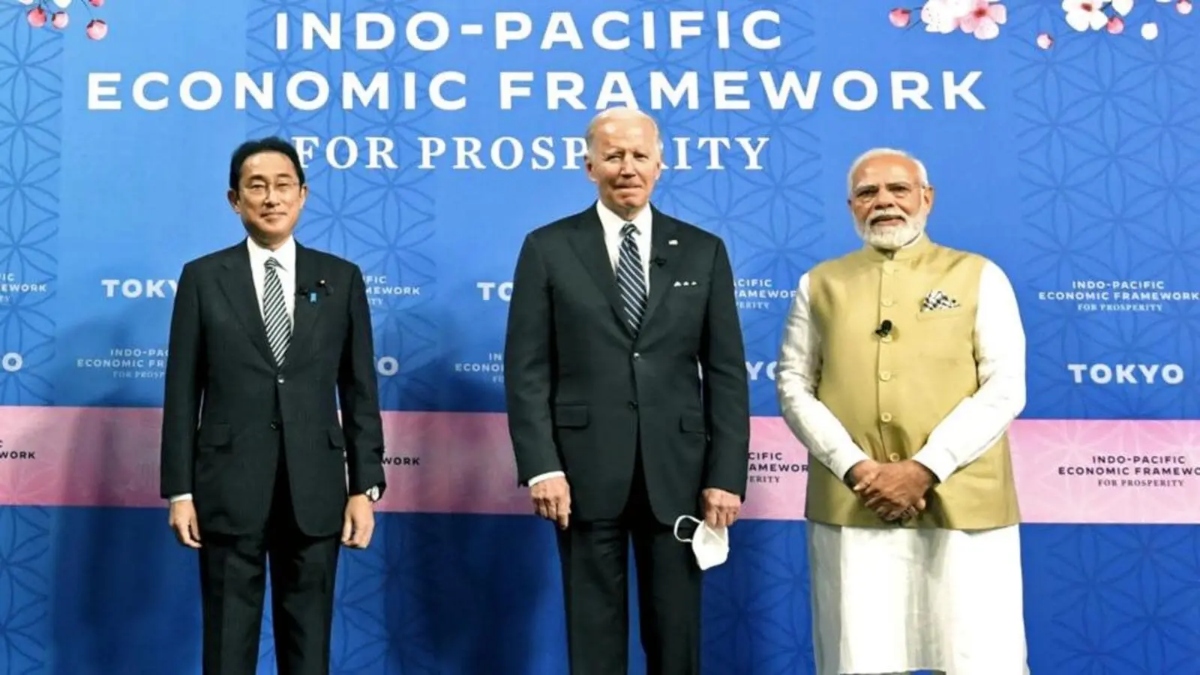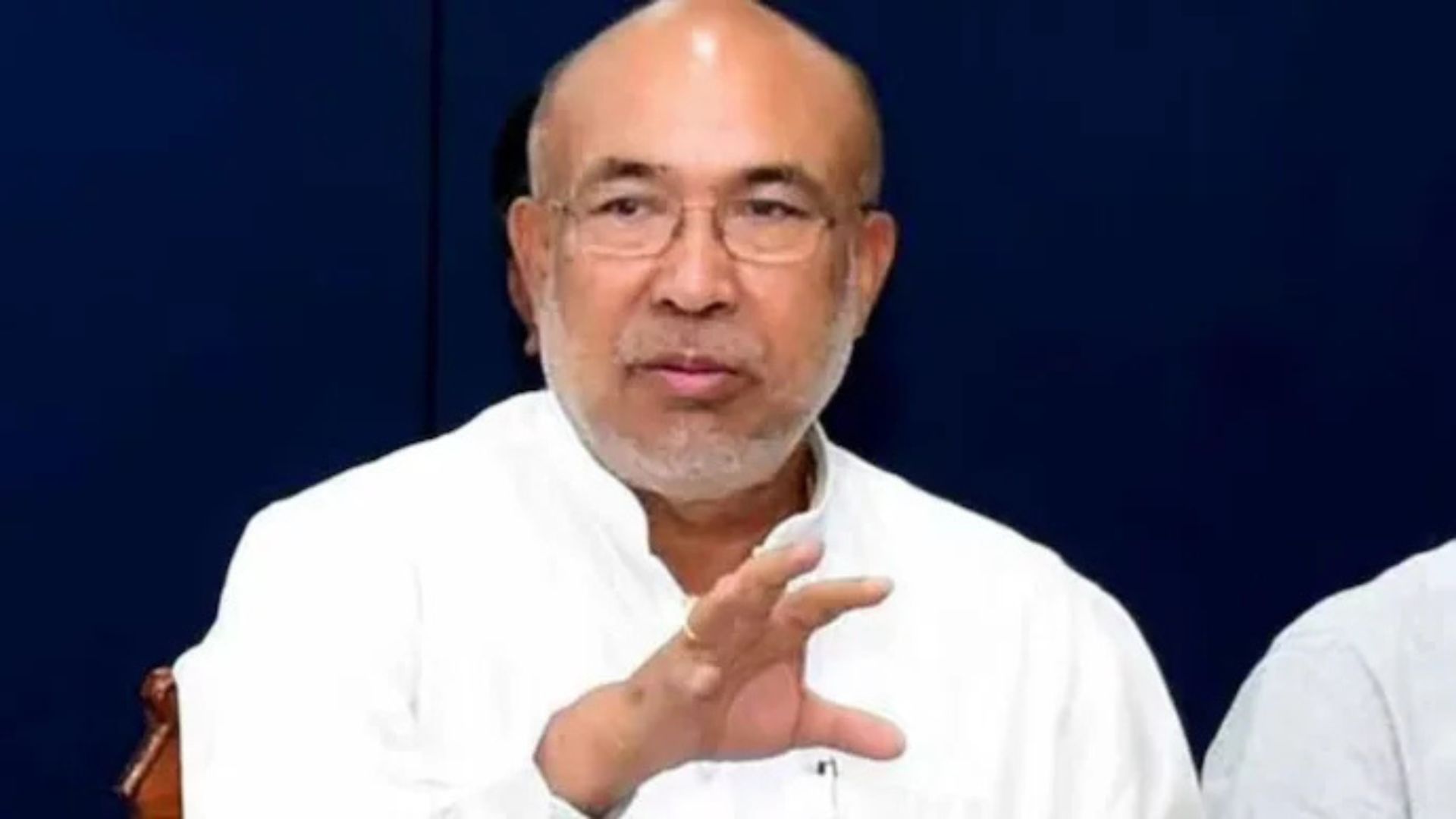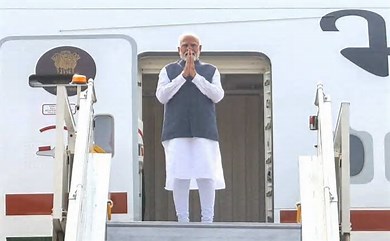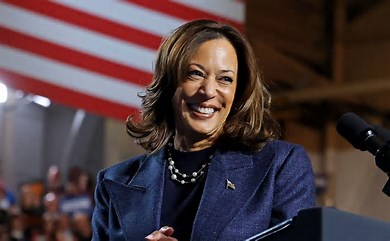
The United States-led Indo-Pacific Economic Framework (IPEF) is calling for prosperity in the region. It, therefore, solicits a critical assessment. We need to evaluate if it is a serious effort toward “region-building” in the Indo-Pacific or just another geopolitical manoeuvring by the United States to find a regional role. The context has to be how the American partners in the region would benefit, and not what the United States thinks it must do. The members must, therefore, approach this framework with adequate caution. Here’s why.
First, a White House statement of 23 May clearly asserted the significance of the Indo-Pacific region for the United States. It suggests that trade with the Indo-Pacific supports more than three million American jobs and attracts approximately $900 billion FDI in the United States. So, in congruence with a previous American initiative viz. Build Back Better World (B3W) that aimed to create American jobs, IPEF, too, carries similar ambitions. In fact, countries which supported the B3W are yet to decipher any pragmatic gains. B3W, a G7 backed $40 trillion infrastructure plan launched in June 2021, was positioned to focus on four potential areas viz. climate, health and health security, digital technology, and gender equity. It has been almost a year now, and the initiative continues to remain in political vacuity. Interestingly, B3W was apparently positioned against China’s Belt and Road Initiative (BRI).
Today, for the IPEF, the real challenge is whether it can create a win-win situation for other developing countries in the region, or is it all about the agenda of restoring “American exceptionalism”. Instead of laying down a concrete geo-economic roadmap for the B3W, and for instance, how private sector capital as mandated can be mobilised to finance it, the United States has brought its partners into a new bandwagon–the IPEF. Interestingly, IPEF carries some overlapping agenda on similar lines as the B3W, amid its call for supply chain resilience, clean energy, or digital economy. In 2019, the United States launched a Blue Dot Network (BDN) as a certification system that aimed to ensure transparency in infrastructure financing. This was also positioned against the BRI –reflecting an American impatience to counter China even through frameworks with unmatched mandate. The IPEF discourse, too, is moving in this direction.
Second, IPEF is not positioned as a traditional free trade agreement. And cannot be compared with a mega-regional bloc like Comprehensive and Progressive Agreement for Trans-Pacific Partnership (CP-TPP). This is because, for a cooperation framework like IPEF, it is not easy to define concrete deliverables e.g. on standards, or for that matter, supply-chain resilience. The propositions envisaged under the Supply Chain Resilience Initiative (SCRI) and China+1 policy, both aiming to reduce dependence on China, are yet to yield any pragmatic outcome. Such deliverables, however, can be defined only in case of mega-regional trade agreements.
Third, IPEF cannot even be compared with congregations like Asia-Pacific Economic Cooperation (APEC) that was formed in 1989 and includes countries on both sides of the Pacific Ocean. Almost all the issues that comprise the core mandate of both B3W and IPEF are already there on APEC’s agenda, and all countries currently in IPEF except India are also APEC members. So, at least for India, joining APEC would create more geo-economic gains instead of relying on IPEF–a congregation that seems to be yet another non-serious American effort after BDN and B3W. It’s no longer about geographic eligibility because United Kingdom which does not share the Pacific has already applied to join the CP-TPP. And China, too, which was deliberately kept out from President Obama’s TPP owing to stringent TRIPS-plus commitments has also expressed its interest in joining it now. With such reconfigurations, a rule-based system can’t be determined by economic frameworks like IPEF, but by mega-regional blocs which not only hosts China, but also Australia, Japan, South Korea, and others.
Fourth, on a strategic note, a crucial issue for the Asian allies of the United States is to decipher for themselves the relationship between Quadrilateral Security Dialogue (Quad) and Australia-United Kingdom-United States (AUKUS). AUKUS was formed by the United States last year by including its old ally i.e. the UK, along with Australia, but by excluding Japan and India which are already there in Quad. Quad’s mandate has been gradually diluted since 2007, so the question remains if AUKUS complements its security role or not.
Therefore, the Indo-Pacific countries need to exercise caution in approaching the IPEF. Through IPEF, the United States tends to assure its Indo-Pacific partners that it still has a geo-economic clout in the region and that China has yet not displaced it. Perhaps, it is largely mistaken because it has been continuously compelled by China to find a regional role in Asia-Pacific at least since 2009. Moreover, IPEF is a unique deal for the United States, but “just another” plan for its partners especially India and Southeast Asian countries. IPEF can make sense only if it advances “region-building” in the Indo-Pacific, but without prioritising American interests. Also, the American narratives against China, even if appealing for few Indo-Pacific countries, cannot help sustain their geo-economic interests.
Faisal Ahmed is a Professor of International Business at FORE School of Management, New Delhi. Alexandre Lambert is the Academic Director at Geneva Institute of Geopolitical Studies, Geneva. They are authors of the book The Belt and Road Initiative: Geopolitical and Geoeconomic Aspects published by Routledge, c.2022.















